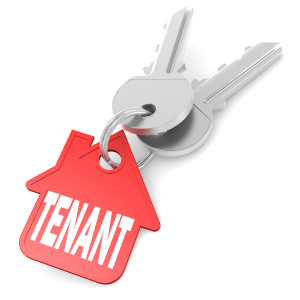
Discover practical strategies for removing bad tenants in Houston, Texas, focusing on legal and effective methods to manage tenant transitions smoothly. Learn about key variations, entities, and steps involved in tenant removal processes without resorting to eviction.
Houston, Texas Eviction: Legal Basis and First Steps
What constitutes a “bad tenant” under Texas law?
A “bad tenant” in Texas violates the rental agreement. Subletting without permission, damaging the property, or doing illegal things can violate the lease. Not paying rent is another major reason Texas tenants are evicted. Landlords must identify these issues and follow Texas law to evict. Before evicting, landlords must document lease violations or missed payments.

Texas eviction notice types and requirements
Texas eviction notices are essential for evicting tenants in Houston. Types of eviction notices:
- The notice to vacate is the initial step, requiring tenants to leave by a specific date.
- Quit or cure: This notice allows tenants to address issues such as unpaid rent within a specified timeframe.
- Unconditional Quit Notice applies to serious lease violations, requiring tenants to leave without fixing the issue.
Prepare all eviction documents properly. Legal representation helps ensure Texas eviction notices comply — reach out to us Sell My House Fast Houston.
A Houston eviction lawsuit requires how long of notice?
Before filing an eviction lawsuit in Houston, a landlord must give a notice with a deadline. The notice to vacate usually lasts three days, but lease terms and court rules may vary. Know the timelines because not following them could affect tenant rights and eviction.
If the tenant doesn’t comply after the notice period, landlords can sue for eviction in the justice court. A successful outcome requires following court rules at every step. A lawyer can simplify tenant rights and evictions.
Yes, this is HTML without markdown or newlines:
Houston Eviction Notice Service: Best Practices
Acceptable Houston eviction notice service methods
Serving an eviction notice in Houston requires specific steps. Here are some common methods:
- Personal Service: Delivering the eviction notice to the tenant. It works well because the tenant gets it right away.
- Certified Mail: Request a return receipt when mailing the notice. This proves the tenant received the notice.
Both methods ensure that the tenant knows about the eviction and follows the legal eviction process. Using these methods helps avoid problems later — we buy houses in Houston, Texas, and nearby cities.
Addressing tenant rejection and providing service
What to do if a tenant refuses the eviction notice:
- Document Attempts: Record dates and times of each notice attempt.
- Witnesses: Have someone else watch you deliver the notice. Third parties can be neutral.
- Legal Representation: Consult a landlord-tenant lawyer to ensure compliance.
Tracking your attempts can show the court that the tenant received the notice, even if they weren’t interested.
The consequences of improper eviction notice service
If the eviction notice is not served the right way, some problems can happen:
- Legal Challenges: The tenant may appeal the eviction, slowing things down.
- Case Dismissal: The court may throw out the eviction case if the notice wasn’t served correctly.
- Additional Costs: Reserving the notice and legal assistance may cost more.
When serving eviction notices, consult a lawyer to avoid these issues. This can help ensure proper start-up.
Always remember that the information here is general guidance. For specific advice, speak with a professional.
A Houston Eviction Lawsuit Step-by-Step Guide
Choosing the Right Court (Justice vs. County) by Claim Amount
Houston eviction lawsuits must be filed in the right court. Case cost determines this choice.
- Justice Court: If your claim amount is up to $20,000, this is the court to go to. It’s usually quicker and has simpler rules.
- County Court: If your claim is more than $20,000, then you’ll file here. The procedures are more formal and might take longer.
Choosing the right court simplifies legal eviction.

Required Houston Eviction Lawsuit Documents
When filing an eviction lawsuit in Houston, you need these documents:
- The eviction lawsuit begins with the petition. The tenant’s eviction is explained.
- Provide proof of service to the tenant to ensure they are aware of the eviction notice.
- Please provide a copy of the lease agreement to demonstrate the agreement between you and the tenant.
Prepare these documents to avoid case delays.
Houston Eviction Lawsuit Court Fees and Costs
Houston eviction lawsuits cost money. What to know:
- Court Fees: Court fees vary by court and are required. Justice Court fees are usually lower than County Court fees.
- Additional Costs: You may incur costs for document service or legal representation.
Understanding these costs and fees is key to budgeting. For more insights, consider cash home buyers in San Antonio and other cities in Texas.
Disclaimer
This guide is for educational purposes only and isn’t legal advice. For specific legal help, talk to a licensed lawyer.
Houston Eviction Court: Hearing Preparation and Results
Eviction hearing preparation: evidence, case presentation, and witnesses.
Gathering evidence and paperwork for an eviction hearing is crucial. This includes rent records, lease agreements, and tenant communications. Case clarity helps in court. Consider bringing witnesses to support your claims. Texas justice courts handling tenant evictions need organized documents.

Understanding tenant defenses and how to respond.
Tenants may use various eviction defenses. They may allege unsafe living conditions or landlord retaliation. Addressing these defenses requires knowledge of Texas tenant rights. Legal aid groups can help tenants with reasonable accommodations. Being prepared to counter these defenses with the right laws can help you in court.
A landlord-tenant judgment or settlement could result from the eviction hearing.
Eviction hearing outcomes vary. The court may favor the landlord or tenant. Sometimes both sides settle. If the landlord wins, eviction continues. A winning tenant can stay in the property. If unhappy, both sides can appeal the decision. These scenarios can help you prepare for court or negotiate a settlement.
Houston Eviction Recuperation: Reclaiming Tenant Belongings
Working with law enforcement to reclaim the property after eviction.
Evicted landlords need a court writ of possession to reclaim their property. Law enforcement can help landlords evict stubborn tenants. This keeps things legal and calm. Landlords should follow the steps carefully to avoid legal issues.
Texas-compliant handling of abandoned tenant property.
Texas landlords must follow rules for left-behind property. Tenants must be given written notice and time to collect. Unless the tenant gets them, the landlord can throw them away or sell them, but they must follow the law. To avoid disputes, keep all tenant notices.
Legal implications of self-help eviction and proper procedure.
Self-help eviction, or eviction without court approval, is illegal in Texas. Changing locks or removing tenant belongings without court approval can result in large fines and legal issues. Landlords must follow the eviction process and respect tenant rights. To know what to do, landlords should consult a lawyer.
FAQs
What is the legal process for evicting a tenant in Houston, Texas?
Start by giving your tenant a written notice for not paying rent or breaking lease rules. If they don’t fix the problem, you can go to the Justice of the Peace Court to file an eviction case. The court will then decide, and if you win, you get permission to legally remove the tenant.
How can landlords protect their property from bad tenants?
Landlords should check new tenants’ backgrounds and rental history. Having a clear lease with rules helps too. Regular checks on the property and talking with tenants often can stop problems before they start.
Are there specific tenant rights during an eviction in Texas?
Yes, tenants have rights. They must get proper notice and the chance to explain their side in court. Tenants with disabilities can also ask for special help and seek legal aid.
Can tenants appeal an eviction judgment in Texas?
Yes, tenants can appeal if they act quickly after the decision. They need to file a notice to appeal and might have to pay a bond.
What options do landlords have if tenants refuse to pay rent in Houston?
Landlords can give a three-day notice to leave if rent isn’t paid. If the tenant still doesn’t pay or leave, landlords can file an eviction case. They can also try mediation to solve issues without going to court.
How should landlords handle tenant belongings after an eviction?
After eviction, landlords must follow local laws about the tenant’s stuff. In Texas, landlords usually have to store belongings for a while so tenants can pick them up.
What are the costs associated with evicting a tenant in Texas?
Costs can include court fees, lawyer fees, and maybe costs for moving or storing tenant items. The total cost depends on the case details, like whether there are appeals.
What resources are available for landlords facing difficult tenants?
Landlords can get help from legal aid, property management advice, and landlord groups. These can help understand laws and manage properties better.
Key Insights
- Discover Houston, Texas, legal eviction processes for removing bad tenants.
- Discover Houston’s bad renter removal strategies, emphasizing tenant rights and landlord responsibilities.
- How long can I leave my house vacant before it becomes a problem or raises concerns with insurance, local laws, or property maintenance?
- Learn legal ways to remove bad tenants in Texas, adhering to state and local laws.
- Discover Texas tenant removal procedures, including timely filings and proper paperwork.
- Explore reasonable accommodations, tenant rights, and lawful eviction practices.
- Explain how to execute a writ of possession in Texas after an eviction judgment.
- Evaluate the role of a constable in enforcing court-ordered evictions and safely removing tenants.
- Respect tenants’ rights to repairs and maintenance in rental agreements.
- Learn how to send eviction notices, such as 3-day or 10-day notices.
- Look at how nonpayment and lease violations affect tenant removal proceedings.
- Find out how nonpayment and lease violations affect tenant removal.
- Evaluate the impact of consumer protection laws on tenant and landlord interests during disputes.
- Assess the necessity of legal aid in eviction cases, highlighting legal aid and law libraries.
- Assess fair legal procedures for handling tenant eviction defenses.
- Explain Houston’s legal procedures for evicting tenants from residential properties.
- Answer questions about illegal lockouts and eviction tenant rights.
- List tenant removal stress-reduction tips.
- Encourage keeping lease agreements and breach reports.
- Advocate for landlords to consider formal mediation before eviction to reach a compromise.
- Establish legal notice requirements before eviction.
Need to sell your home? Whether you want a fast sale, want to avoid expensive repairs, or prefer a smooth, stress-free process, Sell My House Fast Houston is ready to help. We provide fair cash offers, take care of the details, and make the experience seamless. Have questions or ready to sell? Call us at (281) 502-4750 for a no-obligation offer. Get started today!
Helpful Houston Blog Articles
- Short Sales To Relatives In Houston, TX
- Tips for Staging a House for Sale in Houston, TX
- How to Remove Bad Tenants in Houston, TX
- Can You Sell A House In Houston, Texas, With A Quitclaim Deed?
- Effective Strategies For Selling Your Foreclosed House In Houston, TX
- Steps To Remove Your Name From A Mortgage After Divorce In Houston, TX
- Effective Strategies To Minimize Closing Costs In Houston, TX Real Estate
- Navigating The Sale Of A Houston, TX Home With Unpermitted Renovations
- Best and Worst Neighborhoods in Houston, TX
- What’s the Best Time to Sell a House in Houston, TX?

| LIENHOLDER | EQUITABLE LIENS | KANSANS | STATE OF KANSAS | MEDICAL SERVICES | HEALTH CARE |
| MEDICAL CARE | BALANCE BILLING | INSURANCE COMPANY | INSURER | FORECLOSE | STATUTES OF LIMITATIONS |
| ATTORNEY | LAWYER | LEGAL COUNSEL | LITIGATION | HEALTH CARE PROVIDER | INJURIES |
| INJURY | COMPENSATION | DAMAGES | ACTUAL DAMAGES | WAGES | PAID OFF |
| PERSONAL INJURY | PERSONAL INJURY CLAIM | MARRIAGE | GARNISHING WAGES | FINANCES | |
| CREDIT COUNSELOR | COPAYMENTS | CO-PAYMENT | SOLOSUIT | INFORMATION | BORROWER |
| CONTRACTS | COMPLAINT | BUDGETING | TRUST | TOOL | TEXAS |
| TAX | TAXATION | SUMMONS | COURT SUMMONS | REPAYMENT PLANS | REAL PROPERTY |
| MEDICARE | MASSACHUSETTS | HEALTH CARE PROVIDERS | HEALTH PRACTITIONER | HEALTH CARE PRACTITIONER | GFE |
| GOOD FAITH ESTIMATE | GOOD FAITH | DEDUCTIBLES | DEBT FORGIVENESS | CONSUMER PROTECTION LAWS | COMPANY |
| CASH | CREDIT INSTITUTIONS | ATTORNEY FEES | ATTORNEY’S FEES | THE UNITED STATES | TERMS OF USE |
| RESEARCH | PRIVACY | PRACTITIONER | PHYSICAL THERAPY | PHYSICAL THERAPIST | DOCUMENT |
| CREDIT REPORT | IN MISSOURI IF | A PAYMENT PLAN | TERMS OF USE | MY HOUSE IN MISSOURI | FOR UNPAID MEDICAL BILLS |
| IN MISSOURI IN MISSOURI | YOUR HOUSE IN MISSOURI | HOUSE GO INTO FORECLOSURE | AND REAL ESTATE IN | LAWYER TO SELL MY | DOCUMENTS NEEDED TO SELL |
| CLAIM DEED ON A | ESTATE AFTER HOUSE IS | MEDICAL BILLS TAKE YOUR | CLAIM ABANDONED PROPERTY IN | IF THE DEBT IS | AN ESTATE AFTER HOUSE |
| PROBATE AND REAL ESTATE | TO CLAIM ABANDONED PROPERTY | DEED ON A HOUSE | I NEED LAWYER TO | TERMS OF USE AND | DOES A FORECLOSURE TAKE |
| SETTLE AN ESTATE AFTER | CAN MEDICAL BILLS TAKE | QUIT CLAIM DEED ON | A FORECLOSURE TAKE IN | TO SETTLE AN ESTATE | DAMAGE TO PROPERTY IN |
| ADMINISTRATOR OF ESTATE IN | LEGAL ACTION TO COLLECT | GO INTO FORECLOSURE IN | A QUIT CLAIM DEED | NEED LAWYER TO SELL | SALE OF PROPERTY IN |
| DO I NEED LAWYER | COURT ORDERED SALE OF | LONG DOES A FORECLOSURE | BECOME ADMINISTRATOR OF ESTATE | TENANT DAMAGE TO PROPERTY | ORDERED SALE OF PROPERTY |
